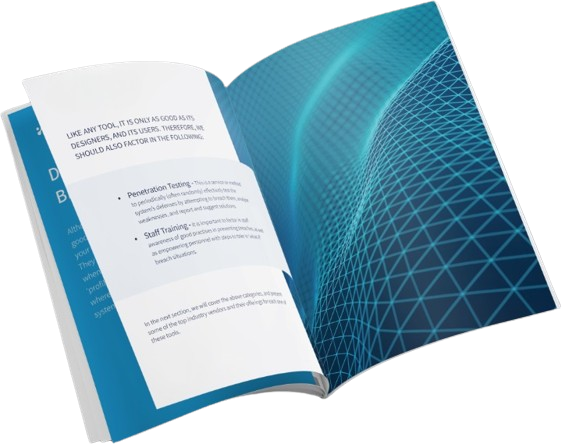When applying for a business loan, lenders assess various factors to determine your creditworthiness.
For instance, your credit score plays a crucial role in this evaluation process. However, it’s not the only aspect that matters.
Factors such as your debt-to-income ratio, business revenue, and collateral can heavily influence the lender’s decision. Understanding how each of these components interplays in the assessment can significantly impact your loan approval chances.
Key Takeaways
- Credit score and payment history crucial for business loan evaluation.
- Debt-to-Income ratio indicates financial stability and debt management skills.
- Business revenue trends and collateral assessment impact creditworthiness.
- Industry-specific risks and regulatory compliance influence credit evaluation.
Importance of Credit Scores
Understanding the significance of credit scores is crucial when evaluating the creditworthiness of a potential borrower for a business loan. One key aspect that lenders look at is credit utilization analysis, which assesses how much of your available credit you’re using. Keeping this ratio low demonstrates responsible borrowing behavior and positively impacts your credit score. Additionally, your payment history plays a significant role in determining your creditworthiness. Timely payments show reliability and financial discipline, boosting your credit score.
Another critical factor is credit mix evaluation. Lenders prefer to see a diverse mix of credit types, such as credit cards, loans, and mortgages, as it indicates your ability to manage various financial responsibilities. On the other hand, a high number of credit inquiries can negatively influence your credit score. Each hard inquiry made by a lender when you apply for credit can slightly lower your score, signaling potential financial instability.
Debt-to-Income Ratio Analysis
When analyzing the debt-to-income ratio for a business loan application, it’s crucial to understand its significance in assessing creditworthiness.
By calculating this ratio using various methods, lenders can gauge the borrower’s ability to manage additional debt based on their current income.
A high debt-to-income ratio may negatively impact loan approval as it suggests a higher risk of default.
Debt-to-Income Importance
Analyzing the debt-to-income ratio is crucial in evaluating your business’s creditworthiness, as it provides a quantitative measure of your company’s ability to manage its debt obligations in relation to its income. A low debt-to-income ratio indicates effective debt management and budget planning, which are essential for demonstrating financial stability to potential lenders.
By comparing the amount of debt your business carries to its income level, lenders can assess the risk associated with extending credit. Maintaining a healthy debt-to-income ratio shows that your business generates enough income to cover existing debts comfortably, making you a more attractive candidate for loans.
Understanding and actively managing your debt-to-income ratio is key to securing favorable financing terms and expanding your business.
Ratio Calculation Methods
Calculating the debt-to-income ratio involves dividing your total monthly debt payments by your gross monthly income to assess your business’s financial health and creditworthiness accurately.
Here are some key points to consider when analyzing this ratio:
- Ratio Comparison Analysis: Compare your debt-to-income ratio with industry standards to see where your business stands.
- Credit Limit Determination: Lenders often use this ratio to determine the maximum credit limit they can offer your business.
- Risk Assessment Techniques: A higher debt-to-income ratio may indicate higher financial risk for lenders.
- Financial Health Evaluation: This ratio is crucial in evaluating your business’s overall financial health and stability.
Understanding and managing your debt-to-income ratio is essential for securing favorable business loan terms.
Impact on Loan Approval
To evaluate the impact of your debt-to-income ratio on loan approval, consider how this critical financial metric influences lenders’ decisions regarding your business’s creditworthiness. Your debt-to-income ratio is one of the key loan approval factors that lenders scrutinize when assessing your business’s ability to repay the loan.
A lower debt-to-income ratio indicates a healthier financial position, making you more likely to secure loan approval. Lenders prefer borrowers with a lower debt-to-income ratio as it signifies a lower risk of default on the loan.
Maintaining a healthy debt-to-income ratio is crucial for enhancing your creditworthiness and increasing the likelihood of loan approval. By managing your debt responsibly and keeping your debt-to-income ratio in check, you can improve your chances of securing the financing your business needs.
Business Revenue Evaluation
When evaluating the creditworthiness of a business for a loan, a crucial aspect to consider is the thorough examination of its revenue streams. Understanding the revenue generation capabilities of a business provides valuable insights into its financial health and repayment capacity. Here are four key elements to focus on when evaluating a business’s revenue for loan creditworthiness:
- Revenue Growth Analysis: Assessing the historical revenue trends of the business is essential to gauge its growth trajectory. Consistent revenue growth indicates a healthy and thriving business, enhancing its creditworthiness.
- Market Positioning Evaluation: Analyzing where the business stands in its market segment is vital. A strong market position signifies a competitive advantage that can lead to sustained revenue streams, positively impacting creditworthiness.
- Operational Efficiency Assessment: Examining the efficiency of revenue generation processes and cost management practices is crucial. High operational efficiency often translates to higher profit margins and better cash flow, strengthening creditworthiness.
- Competitive Landscape Review: Understanding the competitive environment in which the business operates is key. Being aware of competitors’ strategies and market share can help assess the sustainability of revenue streams and the overall creditworthiness of the business.
Collateral Assessment Process
Assessing the value of collateral assets held by a business is a critical step in determining its creditworthiness for a loan. The process involves a detailed evaluation of the assets that a business pledges as security for the loan. Asset valuation is crucial as it helps in determining the loan security and the financial health of the business. The value of the collateral assets plays a significant role in mitigating the lender’s risk in case the borrower defaults on the loan.
During the collateral assessment process, various factors are taken into consideration to determine the value of the assets accurately. These factors may include the type of assets being offered as collateral, their market value, liquidity, and potential depreciation. Lenders often use professional appraisers to assess the value of the assets and ensure that they align with the loan amount being requested.
Additionally, risk assessment is an integral part of the collateral assessment process. Lenders analyze the risk associated with the assets being offered as collateral to gauge the probability of recovering the loan amount in case of default. By conducting a thorough collateral assessment, lenders can make informed decisions regarding the creditworthiness of a business and the terms of the loan.
Industry Risk Considerations
Consider industry-specific risk factors when evaluating a business’s creditworthiness.
Analyze how market trends impact the company’s financial stability and growth potential.
Assess the business’s adherence to regulatory compliance standards within its industry to gauge its risk profile accurately.
Industry-Specific Risk Factors
Industry-specific risk factors play a crucial role in evaluating the creditworthiness of businesses applying for loans, as they provide insights into the unique challenges and opportunities present within a particular sector. When assessing industry risk factors, consider the following:
- Regulatory Environment: Understanding the regulatory landscape impacting your industry is essential for risk assessment. Changes in regulations can significantly affect operations and profitability.
- Competitive Landscape: Analyzing the level of competition within your industry helps identify potential risks stemming from market saturation or aggressive competitors.
- Technological Disruption: Assessing how susceptible your industry is to technological advancements can reveal risks related to becoming obsolete or failing to innovate.
- Supply Chain Vulnerabilities: Evaluating the resilience of your supply chain is crucial for identifying risks associated with disruptions in the flow of goods or services.
Market Trends Impact
Market trends significantly influence the creditworthiness evaluation of businesses seeking loans, shaping risk considerations within specific industries. Understanding how market trends impact creditworthiness analysis is crucial for businesses navigating the loan application process.
Lenders assess industry-specific risks based on current market conditions, such as demand shifts, competitive landscapes, and economic indicators. For example, in a volatile market where demand for a particular industry’s products or services is declining, lenders may view businesses in that sector as higher risk. On the other hand, industries experiencing growth due to emerging trends may be perceived as more creditworthy.
Regulatory Compliance Standards
In evaluating business loan creditworthiness, the adherence to regulatory compliance standards within specific industries plays a critical role in assessing associated industry risks. Understanding compliance requirements and their impact on risk assessment is essential for a comprehensive evaluation.
- Compliance Requirements: Each industry has distinct regulatory standards that businesses must follow to ensure compliance with laws and regulations.
- Risk Assessment: Compliance with industry regulations directly influences the level of risk associated with a business, affecting its creditworthiness.
- Monitoring Processes: Implementing robust monitoring processes to track regulatory changes helps mitigate compliance risks.
- Penalties and Fines: Failure to comply with regulatory standards can result in significant penalties and fines, impacting the financial health of a business.
Credit History and Payment Patterns
When evaluating business loan creditworthiness, analyzing credit history and payment patterns is crucial for assessing the financial reliability of the borrower. Credit history provides insights into how you have managed credit in the past. Lenders look at your payment history, which includes whether you have paid your bills on time, late, or have any accounts in collections. Consistently making on-time payments improves your creditworthiness, signaling to lenders that you’re a responsible borrower.
Another critical factor is credit utilization, which is the ratio of your credit card balances to your credit limits. High credit utilization can indicate financial strain and may lower your credit score. Lenders prefer to see lower credit utilization rates, as it suggests responsible credit management.
Moreover, your payment patterns can significantly impact your creditworthiness. Lenders assess the frequency and timeliness of your payments across different credit accounts. Making timely payments consistently demonstrates reliability and positively influences your credit score. Conversely, late or missed payments can raise red flags for lenders, indicating potential financial instability.
Underwriter’s Decision Making
To determine the creditworthiness of a business loan applicant, the underwriter meticulously evaluates various financial factors and risk indicators. From the underwriter’s perspective, the decision-making process involves employing sophisticated risk assessment techniques to gauge the probability of repayment.
Here are four key aspects the underwriter considers:
- Financial Statements Analysis: The underwriter meticulously reviews the applicant’s financial statements, including income statements, balance sheets, and cash flow statements. By analyzing these documents, the underwriter gains insights into the business’s financial health and its ability to meet repayment obligations.
- Credit Score and History: The underwriter assesses the applicant’s credit score and credit history to determine their past credit behavior. A strong credit score and a history of timely payments indicate reliability, increasing the likelihood of loan approval.
- Debt-to-Income Ratio: The underwriter calculates the applicant’s debt-to-income ratio, comparing the amount of debt the business carries to its income. A lower ratio signifies a healthier financial position and a higher capacity to take on additional debt.
- Collateral Evaluation: In cases where the loan requires collateral, the underwriter evaluates the value and quality of the assets being pledged. Collateral provides security for the lender, reducing the risk of financial loss in case of default.
Frequently Asked Questions
How Do Personal Assets Impact Business Loan Creditworthiness?
When considering how personal assets impact business loan creditworthiness, it’s crucial to acknowledge the influence of personal liabilities and collateral value.
Personal liabilities, such as outstanding debts, can affect your overall financial health and make lenders wary. On the other hand, collateral value, like real estate or investments, can provide security for the loan, boosting your creditworthiness.
Balancing these factors is key to demonstrating your ability to repay the loan responsibly.
Can a Strong Business Plan Compensate for a Low Credit Score?
Even though a strong business plan is crucial, it mightn’t fully compensate for a low credit score. Business plan significance is undeniable, as it outlines your strategy and potential for success.
However, credit score importance can’t be overlooked by lenders, as it directly reflects your past financial responsibility. While a robust business plan can help mitigate concerns, a low credit score may still raise red flags and impact your loan approval chances.
What Role Does Industry Experience Play in Determining Creditworthiness?
When assessing creditworthiness, industry expertise significantly influences lenders’ decisions. Your familiarity with the specific sector can demonstrate competence and reduce risks, impacting credit evaluation positively.
Lenders view industry experience as a vital factor in determining your ability to manage financial obligations effectively. Showcasing a deep understanding of your field can enhance your creditworthiness, potentially opening up more favorable loan terms and opportunities for your business.
How Does the Age of a Business Affect Its Ability to Secure a Loan?
When it comes to securing a loan, business longevity is like a sturdy oak tree, providing a sense of financial stability. Lenders often view established businesses more favorably, as they demonstrate a track record of success and reliability.
Business age can significantly impact creditworthiness and loan approval, with longer-standing businesses having a higher chance of meeting lender criteria due to their proven ability to weather economic challenges and maintain financial health.
Are There Alternative Financing Options for Businesses With Poor Credit Histories?
If your business has a poor credit history, alternative financing options can still be available. Non-traditional lenders often consider factors beyond credit scores.
Collateral options, such as equipment or inventory, can help secure a loan. These lenders might be more flexible in their requirements and willing to work with you to find a solution that fits your needs.
Researching various non-traditional lending options could open up opportunities for funding despite past credit challenges.
Final Thoughts
Your business loan creditworthiness is determined by a combination of factors such as:
- Credit scores
- Debt-to-income ratio
- Business revenue
- Collateral
- Industry risk
- Credit history
Just like a puzzle coming together, these pieces paint a picture of your financial health and ability to repay the loan. By understanding and improving these key elements, you can increase your chances of securing the funding needed to grow your business.



